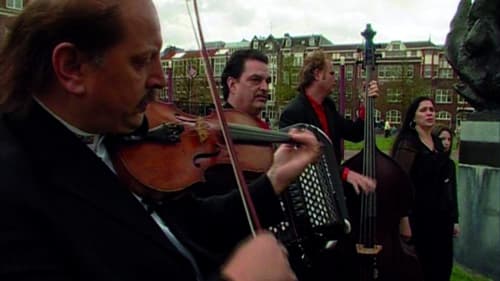
Director

Director
A documentary about the Sinti en Roma in The Netherlands.

Director

Director
Award-winning film that tells the story of twelve Romany travelers who survived the genocide on gypsies during World War 2 - a piece of history largely undocumented until now.

Editor
Director Entrop follows Lalla Weiss for a year, the spokeswoman of the national Sinti and Roma organisation. Weiss emphasises that the Roma and Sinti have been denied a place in our culture for seven hundred years, and that this is only recently and gradually changing. She herself is the living proof of the fact that things can change: she is married to Kees, a civilian, and as his wife she takes the lead in the traditional male dominated Roma and Sinti societies.

Director of Photography
Director Entrop follows Lalla Weiss for a year, the spokeswoman of the national Sinti and Roma organisation. Weiss emphasises that the Roma and Sinti have been denied a place in our culture for seven hundred years, and that this is only recently and gradually changing. She herself is the living proof of the fact that things can change: she is married to Kees, a civilian, and as his wife she takes the lead in the traditional male dominated Roma and Sinti societies.

Producer
Director Entrop follows Lalla Weiss for a year, the spokeswoman of the national Sinti and Roma organisation. Weiss emphasises that the Roma and Sinti have been denied a place in our culture for seven hundred years, and that this is only recently and gradually changing. She herself is the living proof of the fact that things can change: she is married to Kees, a civilian, and as his wife she takes the lead in the traditional male dominated Roma and Sinti societies.

Director
Director Entrop follows Lalla Weiss for a year, the spokeswoman of the national Sinti and Roma organisation. Weiss emphasises that the Roma and Sinti have been denied a place in our culture for seven hundred years, and that this is only recently and gradually changing. She herself is the living proof of the fact that things can change: she is married to Kees, a civilian, and as his wife she takes the lead in the traditional male dominated Roma and Sinti societies.

Director
Many subjects are taboo within the gypsy or rather Roma and Sinti communities. This partly explains why relatively little attention is paid to the scores of Roma and Sinti (the film mentions almost a million) who died in World War II concentration camps. Now that ever fewer eye witnesses are still alive, the remaining ones sparsely reveal a little more. Initially, Auschwitz
survivor Lily only wants to explain how degrading it felt to have to undress in front of German officers - nudity and sexuality are big taboos. Still, a little later she decides to tell how women were raped and abused in horrifying medical experiments.

Director
Director Bob Entrop has been fascinated for years with the life of Roma and Sinti gypsies, their peculiar practices, codes and taboos. He tries to gain a better understanding of this vexed community - traditionally associated with campfires, abundant eating and drinking and music. He poses some imaginative questions in his film. More than once, however, he is told
that something is none of his business or that 'those matters' are not discussed, especially not in front of a camera. Still, he manages to lift a corner of the veil.






